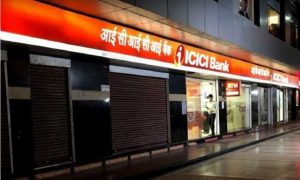New Delhi: Soon, public sector banks (PSBs) will have standard operating hours across the country. Under Enhanced Access and Service Excellence Programme (EASE) 2.0, this is part of the reform agenda of the government for PSBs. Along with this, the consolidation of PSBs will also be a part of this programme. A panel of the banker has recommended that every region adopt 9 am to 3 pm, 10 am to 4 pm or 11 am to 5 pm, one of three six-hour slots. It may be noted that the banks have already agreed to keep the branches operational for the customers for uniform working hours in one location.
“The three-time slots (9 am to 3 pm, 10 am to 4 pm or 11 am to 5 pm) have been suggested, but banks can have other slots. The idea is that in one locality, one branch doesn’t open at 8 am and another at 10 am as customers get confused. Residential areas can have branches opening at 8 am or even operate in the evening. But it needs to be uniform,” said Indian Banks’ Association (IBA) CEO V G Kannan. He further added that most commercial branches already have a uniform opening time between 10.30am and 11 am, according to a news report in a national daily.
“Banks have to discuss at the state level bankers’ committee and decide on timings for different locations. We are not going to dictate to them. Even in one place, the branch timings may be different for the market, residential and business,” iterated Kannan. He also said that in one location, market branches and those in residential areas could have different timings.
In June this year, the proposal for uniform working hours across India was discussed in a meeting between the finance ministry and the PSB chiefs, under the aegis of the Indian Banks’ Association. On June 24, a sub-committee headed by the IBA chairman was constituted to finalise the action points, post-IBA-government meeting on June 10.
On August 1, the sub-committee, at its meeting decided to leave it to “lead bank” managers to decide on the timing after consulting with district-level committees of bankers. After which the state-level bankers’ committee would approve and then implement the new timings. Worth mentioning here is that in order to deliver government programmes, every state has a lead bank which is usually a lender with a wide presence in the state.
For more updates: Like us on Facebook and follow us on Twitter & Instagram



































